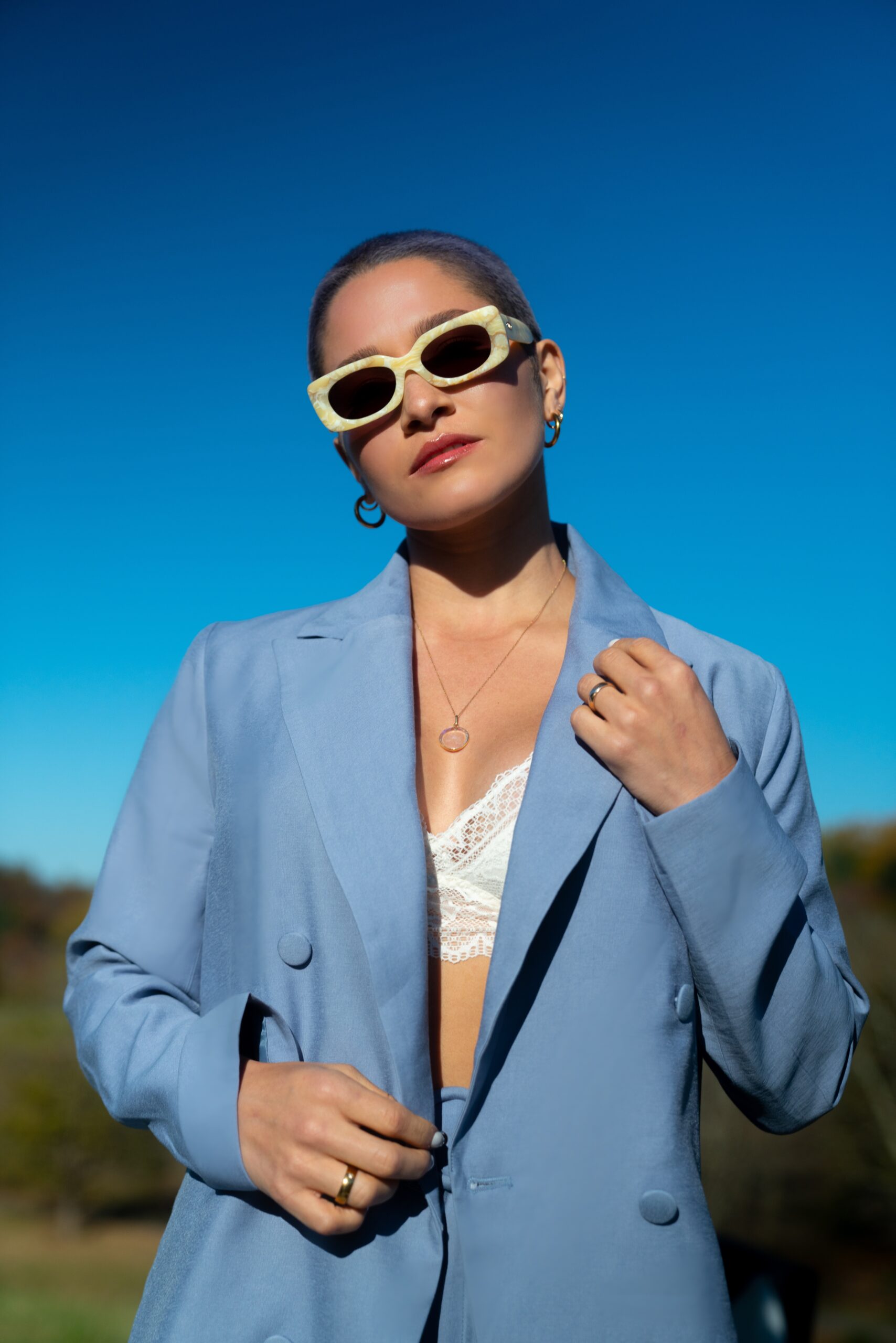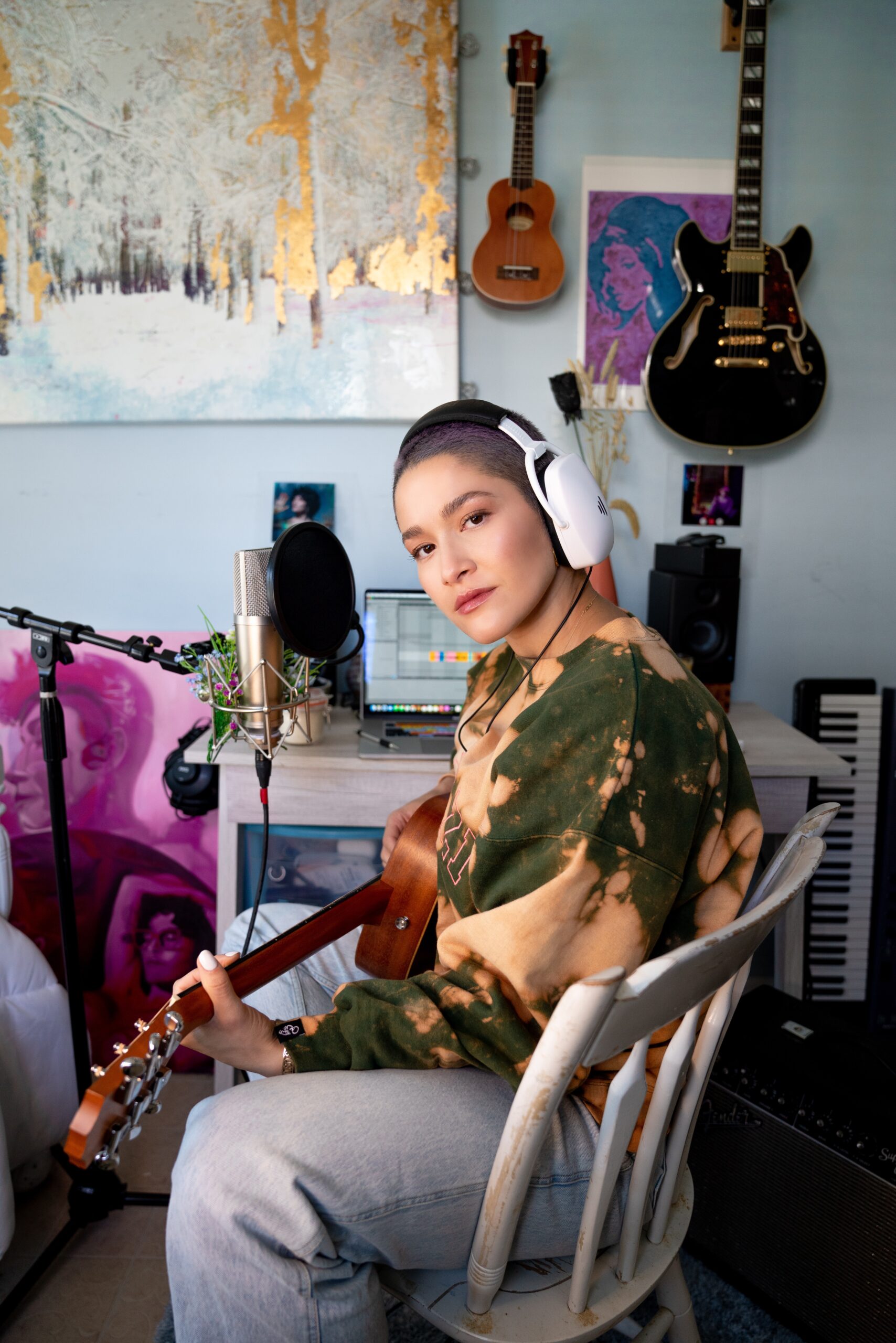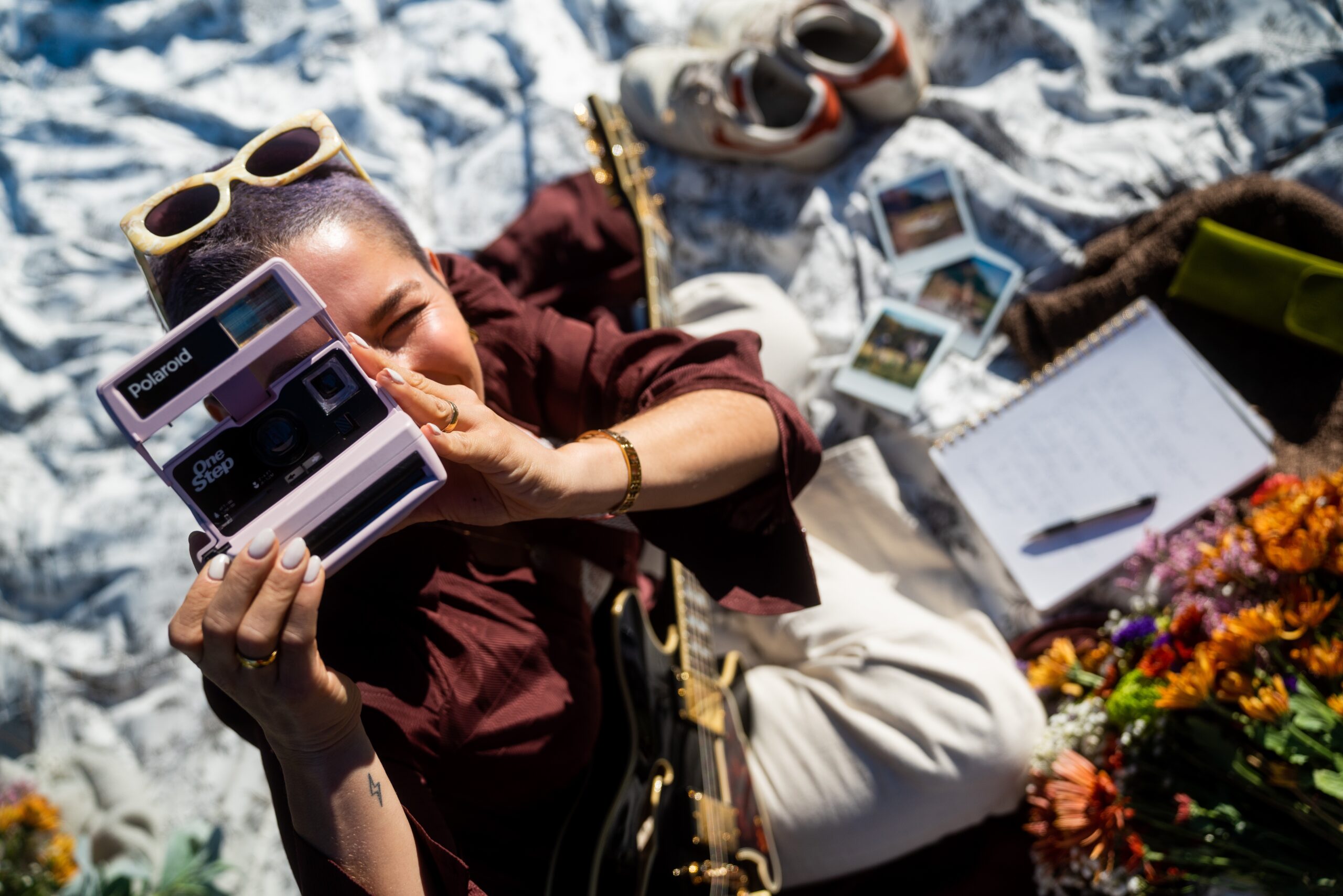Photography by Jasmine Hope Veridiano
For Bianca Muñiz, music is therapy. Her affinity for singing took root at an early age, and the talent has served the 27-year-old well throughout her three cancer fights thus far.
The susceptibility the singer-songwriter has toward developing various types of cancer is a result of a mutated TP53 gene. Irregularity in this hereditary gene is rare and leaves people at a higher risk of developing multiple cancer types in their lifetime. “It’s a super fun mutation,” Muñiz quips.
Muñiz’s first diagnosis came at age 11, paired alongside a leading role in the school musical. While it sounds like poor timing, theater actually ended up serving as a catalyst for the young Muñiz while she underwent treatment for ovarian cancer.
“My parents and my doctors all tried to get me to drop out of school for a year and I was like, ‘Absolutely not,’” Muñiz recalls. She had been cast in her dream role of Gabriella Montez in “High School Musical” after all. “So, my doctors and I made a deal. If my blood count was too low, then I would have to wear a mask. And if it was really too low, I wasn’t allowed to go at all, which never happened because I always stayed on top of everything because I really wanted to perform. I’d be in the hospital practicing my lines and singing to all the nurses—anyone that would listen.”

In the end, Muñiz was able to perform and there was no evidence of disease after six months of grueling treatment. But the experience left a lasting impression on her, fueling a hyper awareness of her own body during an already notoriously tumultuous period of life for young girls.
“I kind of just wanted to forget about all of it,” says Muñiz. “I didn’t want anyone to know and I was trying to keep it a secret because I was in middle school and going into high school—I just wanted to fit in.”
While Muñiz was seemingly pushing cancer to the back of her mind, she fixated on her physical body. For a bit, she struggled with an eating disorder due to the effects from treatment. Then, in high school, she’d perform constant self-checks, finding benign tumors. “I wasn’t actively thinking about [cancer], but subconsciously I was thinking about it enough to be this aware of my body,” she says.
In college, one of Muñiz’s self-checks resulted in her finding yet another lump in her breast—but this time it wasn’t benign. At 22, she was diagnosed with cancer for the second time.
“My response was like, ‘Well, if I’m alive, then I’m fine.’ And that’s pretty much been my motto ever since,” says Muñiz.
Muñiz’s earlier music, written while she was in college, is what she describes as “eclectic.” Inspired by her jazz school background, Muñiz masters the mixing of different genres, producing a wonderfully intricate and layered result. We each try to come up with an artist that sounds even remotely similar: I suggest Fiona Apple, and Muñiz cites Radiohead as her biggest inspiration. “They’re incredible. They made me feel better and validated about my earlier music,” she says.

Influences aside, Muñiz’s music is truly something all her own.
After her second cancer diagnosis, Muñiz found that she was discovering things about herself through the art of singing and songwriting. She’d had fun experimenting with jazz, rock and other genres prior to her diagnosis, but now she was seeing that music could be an outlet—she even taught herself guitar during breast cancer treatment. “I feel like I’ve finally got a grasp of who I am musically,” she says. “Every song is going to be different, but there’s an underlying theme now.”
Her more recent releases still possess an experimental element, but the growth in Muñiz as an artist is evident. A dreamy darkness tinged with a bittersweet, melancholic air envelopes many of her songs, derivative of her unearthing emotions that came with her breast cancer diagnosis.
My response was like, ‘Well, if I'm alive, then I'm fine.’ And that's pretty much been my motto ever since.
“Take me away to somewhere in the night and let me escape from the sorrows of this life / I cry myself to sleep, but no one seems to hear me,” Muñiz reverberates on the track “Take Me Away” as a haunting piano solo leads listeners into a climactic and chaotic auditory journey.
“My writing totally changed [after my diagnosis],” Muñiz says. “It very much became a source of music therapy for me. And it’s helped me process. ‘Take Me Away’ was the first song I wrote after I was diagnosed, and I hadn’t realized there was a very dark side of my mind that I didn’t know was there until I wrote that song. I read it back and I was like, ‘Oh, OK, that’s how I feel. Cool.’”
Bianca Muñiz is a singer-songwriter based in New York. Her next single and music video, “Nothing’s The Same,” drops Jan. 19, 2022. Follow her on Instagram at @biancamunizofficial.










